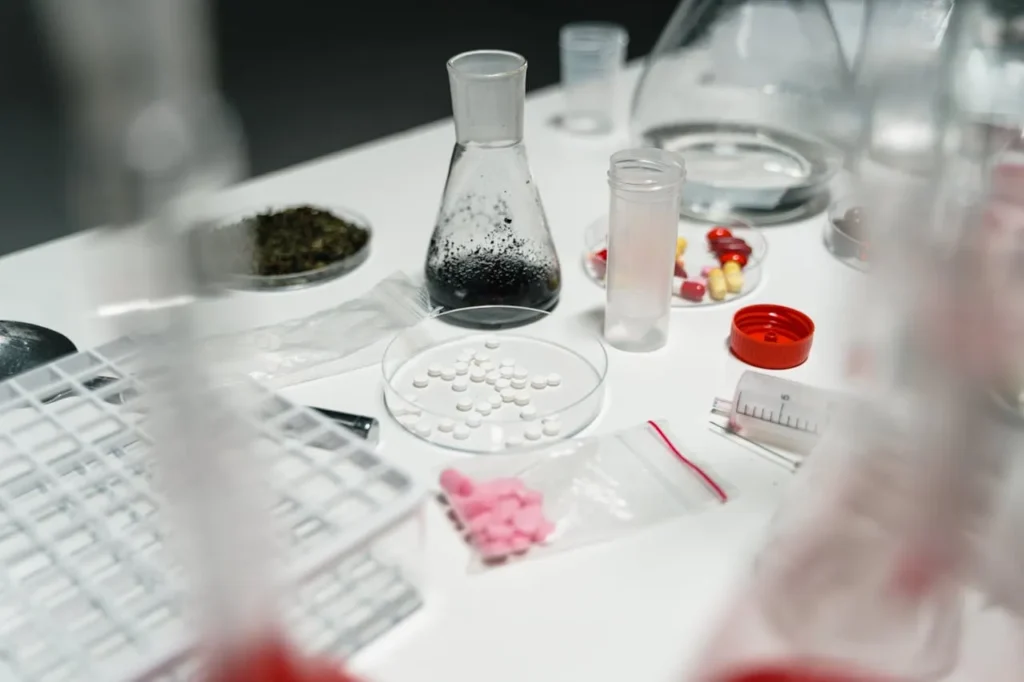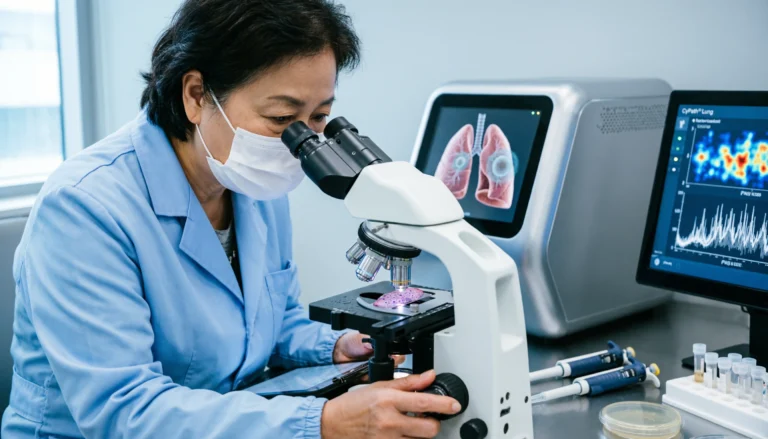
Protein Prediction LG Develops Next-Generation AI for Protein Structure Prediction to Revolutionize Drug Discovery
On February 5th, LG AI Research took a significant step in advancing the field of artificial intelligence-driven biotechnology by signing a joint research agreement with Professor Min-Kyung Baek from the School of Biological Sciences at Seoul National University. The agreement, formalized at the Global Lounge of Protein Prediction LG Science Park in Magok, Gangseo-gu, Seoul, focuses on the development of a “next-generation protein structure prediction AI,” aimed at addressing the complex challenges in modern drug discovery.

The Significance of Protein Structure Prediction in Drug Development
Proteins are essential biomolecules that regulate nearly all biological functions in the human body. They play a crucial role in cellular processes, immune responses, and disease mechanisms. Understanding protein structures is fundamental to diagnosing diseases, discovering therapeutic targets, and developing new drugs.
Protein Prediction structure prediction, a key field in bioinformatics, involves determining the three-dimensional shapes of proteins from their amino acid sequences. Traditional experimental methods, such as X-ray crystallography and cryo-electron microscopy, are expensive, time-consuming, and often limited in scope. AI-driven protein prediction models offer a revolutionary approach, significantly accelerating the process and enabling breakthroughs in medical research.
Current Limitations and Challenges in AI-Driven Protein Prediction
While global technology giants have made significant progress in protein structure prediction using artificial intelligence, existing models primarily focus on single protein structures. However, in biological systems, proteins rarely exist in isolation. Instead, they interact dynamically with other molecules and change their shapes in response to environmental and chemical stimuli. These transformations, known as “multistate” protein structures, are critical in understanding disease mechanisms and developing effective treatments.
Predicting multistate protein structures remains one of the most significant challenges in computational biology. Existing AI models struggle to accurately capture the multiple conformations of proteins, limiting their practical application in drug discovery. Addressing this challenge is vital for advancing precision medicine and accelerating the development of treatments for complex diseases such as cancer, Alzheimer’s, and autoimmune disorders.
The Role of Professor Min-Kyung Baek and the RoseTTAFold Breakthrough
Professor Min-Kyung Baek is a globally recognized expert in protein structure prediction. She co-developed the groundbreaking AI model “RoseTTAFold” alongside Professor David Baker from the University of Washington. Professor Baker, a pioneering researcher in AI-driven protein folding studies, was awarded the 2023 Nobel Prize in Chemistry for his contributions to the field.
RoseTTAFold represented a significant leap in AI-based protein prediction, providing rapid and accurate models of single protein structures. However, the challenge of predicting multistate protein structures remains. Through collaboration with Professor Baek’s research team, LG AI Research aims to overcome these limitations by developing an advanced AI model capable of predicting protein structures in various conformations.
LG AI Research’s Vision: Revolutionizing Drug Discovery
Protein Prediction LG AI Research has set an ambitious goal of developing an AI model for multistate protein structure prediction by the end of the year. This advancement is expected to deepen our understanding of biological processes and provide invaluable insights for drug development. The ability to predict and analyze proteins in their multiple conformations will pave the way for designing more effective and targeted treatments.
Professor Min-Kyung Baek emphasized the significance of this research, stating, “While AI is a powerful tool for predicting protein structures, its underlying principles are still not fully understood. Through our joint research with LG AI Research, we aim to push protein structure prediction to a new level—one that incorporates verification and experimentation.”
The Impact on Incurable Diseases and Drug Discovery
The research being conducted by LG AI Research has profound implications for the treatment of currently incurable diseases. Many complex conditions, such as Alzheimer’s disease, Parkinson’s disease, and certain types of cancer, are linked to the misfolding and aggregation of proteins. The ability to predict multistate protein structures will allow researchers to identify key structural changes that contribute to disease progression.
Soonyoung Lee, Bio Intelligence Lab Leader at Protein Prediction LG AI Research, highlighted the significance of this research, saying, “The complexity of protein structures is at the heart of incurable diseases like Alzheimer’s, and unraveling them is a highly challenging task. By developing AI for protein multistate structure prediction, we expect to achieve breakthroughs in understanding disease mechanisms and developing new treatments—much like unlocking a lock.”
Collaboration with The Jackson Laboratory: Expanding the Scope of Research
This joint research initiative aligns with LG AI Research’s ongoing collaboration with The Jackson Laboratory (JAX), a renowned U.S.-based nonprofit genomics research organization. Since early 2023, LG AI Research has been working with JAX to develop AI-driven predictive models for diagnosing and treating diseases such as Alzheimer’s and cancer.
By integrating the new AI-based multistate protein prediction model into their research framework, LG AI Research aims to accelerate the discovery of disease biomarkers and novel drug candidates. The insights gained from this collaboration will enhance our understanding of disease mechanisms at a molecular level, leading to the development of targeted therapies.
LG’s Commitment to AI and Biotechnology Innovation
Under the leadership of Chairman and CEO Koo Kwang-mo, LG Group has been actively investing in cutting-edge technologies across multiple disciplines. In his 2025 New Year address, Koo emphasized LG’s commitment to healthcare solutions and innovative medicines, stating, “Through healthcare solutions and innovative new medicines, we aim to help people spend more time with loved ones.”
This vision underscores Protein Prediction LG’s dedication to fostering the convergence of artificial intelligence and biotechnology as a core pillar of its future growth strategy. The company has identified three key growth drivers—AI, Bio, and Cleantech (ABC)—and is actively investing in these areas to drive long-term innovation.
The Future of AI-Driven Drug Discovery
The development of next-generation AI for protein structure prediction represents a significant milestone in the integration of AI and life sciences. By advancing beyond single-state protein predictions and tackling the complexities of multistate structures, LG AI Research is positioning itself at the forefront of AI-driven drug discovery.
This breakthrough is expected to enhance the precision of drug design, reduce the time and cost associated with drug development, and improve patient outcomes. Moreover, the ability to predict protein structures in different states will facilitate the creation of highly specific and effective therapies tailored to individual patients.
As the field of AI-driven biotechnology continues to evolve, LG AI Research’s collaboration with Professor Min-Kyung Baek and leading global institutions will play a crucial role in shaping the future of medicine. By leveraging AI to decode the complexities of human biology, LG is paving the way for transformative advancements in healthcare and drug discovery.





